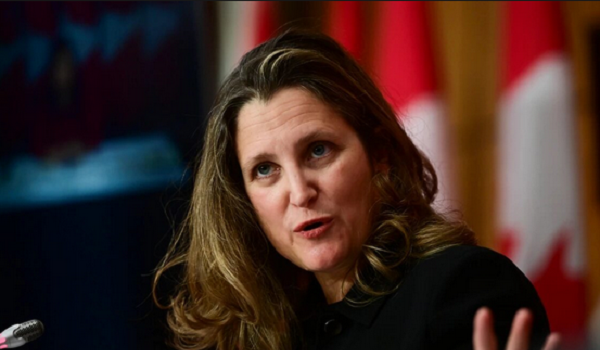Following management agreement not to lay off striking workers, Postal workers union withdraws complaints
The Canadian Union of Postal Workers has withdrawn an unfair labour practice complaint against Canada Post after the company agreed it would not lay off any workers during an ongoing strike by 55,000 employees.
Management also agreed to rescind the layoff notices it had already sent to 328 employees at the beginning of the strike which is now nearing the one-month mark.
“CUPW viewed Canada Post’s unprecedented move of laying off hundreds of striking postal workers as a blatant intimidation tactic and a serious violation of … the fundamental right of workers to strike as enshrined under the Canadian Charter of Rights and Freedoms,” CUPW’s Carl Girouard said in a written statement Wednesday evening.
“This settlement provides immediate relief to the impacted members and avoids a lengthy hearing … CUPW sees this settlement as an important victory for workers’ rights.”
The two sides reached an agreement Wednesday after mediation with the Canada Industrial Relations Board.
The company said it reserved the right to make staffing changes, despite the agreement.
“Under the terms of the resolution, Canada Post reserves the right to make staffing adjustments in the future if required,” the company said.
The CIRB had been set to hear the union’s complaint earlier Wednesday that the company acted illegally when it laid off some workers as the strike began.
The unfair labour practice complaint by CUPW asked the CIRB to order Canada Post to rescind the layoffs.
“It is imperative that the board take swift and decisive action to communicate to (Canada Post), and most importantly, to … employees, that a strategy of illegal intimidation of workers exercising their right to strike will not be tolerated,” the union’s application to the CIRB said. The complaint also said the layoffs undercut support among workers for the strike, calling the impact “corrosive.”
“As a result of the mass layoffs, members are questioning the union’s negotiating strategy and doubting whether the union can protect them from … reprisals,” the application said. “Union officers and representatives are having to work hard to counter the corrosive effects of (Canada Post’s) intimidation tactics on union solidarity and morale on the picket lines.”
In its official response to the union’s application, Canada Post denied that the layoffs were an intimidation tactic, and argued they were a response to a drop in parcel business that the company saw ahead of the strike, which began Nov. 15.
“Canada Post’s plan to implement temporary layoffs was designed to address its changing operational and business realities, including a steep decline in parcel volumes. … This decline in parcel volumes was triggered by the threat of a work stoppage,” the company argued in its response. “Canada Post simply cannot afford to pay its full workforce in the face of a steep decline in parcel volumes, and the acute pressures that Canada Post’s business faces more generally.”
Tuesday, the company responded to the union’s latest contract proposal, saying it would add $2.9 billion to Canada Post’s costs over the next four years.
The union proposal, delivered through a federally-appointed mediator Monday, lowered wage demands to a 19 per cent increase over four years from the previous 24. It also included a 20-hour per week guarantee for part-time workers.
A series of back-and-forth proposals began last Sunday, after the union and Canada Post received a stern, closed-door talking-to from MacKinnon.
Still, no formal contract negotiations had taken place since Nov. 28, when the mediator called off talks, saying the two sides were too far apart to reach a deal. The strike began Nov. 15.
Canada Post has previously said it offered wage increases totalling 11.5 per cent over four years and additional paid leave, while protecting the defined benefit pension and job security provisions.
The union had called for a cumulative wage hike of 24 per cent over four years, as well as suggesting that Canada Post expand into banking.
The company is seeking to provide weekend deliveries and have a greater share of its staff working part-time. The union wants full-time workers to do weekend delivery, while the company wants to hire part-time staff to do the job.
On Parliament Hill Wednesday, federal labour minister Steven MacKinnon again urged the parties to get back to the negotiating table.
“Canadians are fed up with this dispute,” MacKinnon told reporters. “They do not believe that the parties have taken negotiations seriously.”
Still, MacKinnon wouldn’t commit to invoking Section 107 of the Canada Labour Code and asking the CIRB to order the two sides to binding arbitration. Asked what would happen if the two sides weren’t able to reach a deal on their own, MacKinnon said he didn’t want to answer a hypothetical question.
“No hypothetical questions here today,” said MacKinnon. “There are no red lines. There’s a collective bargaining system which the parties are part of.”
This article was first reported by The Star













